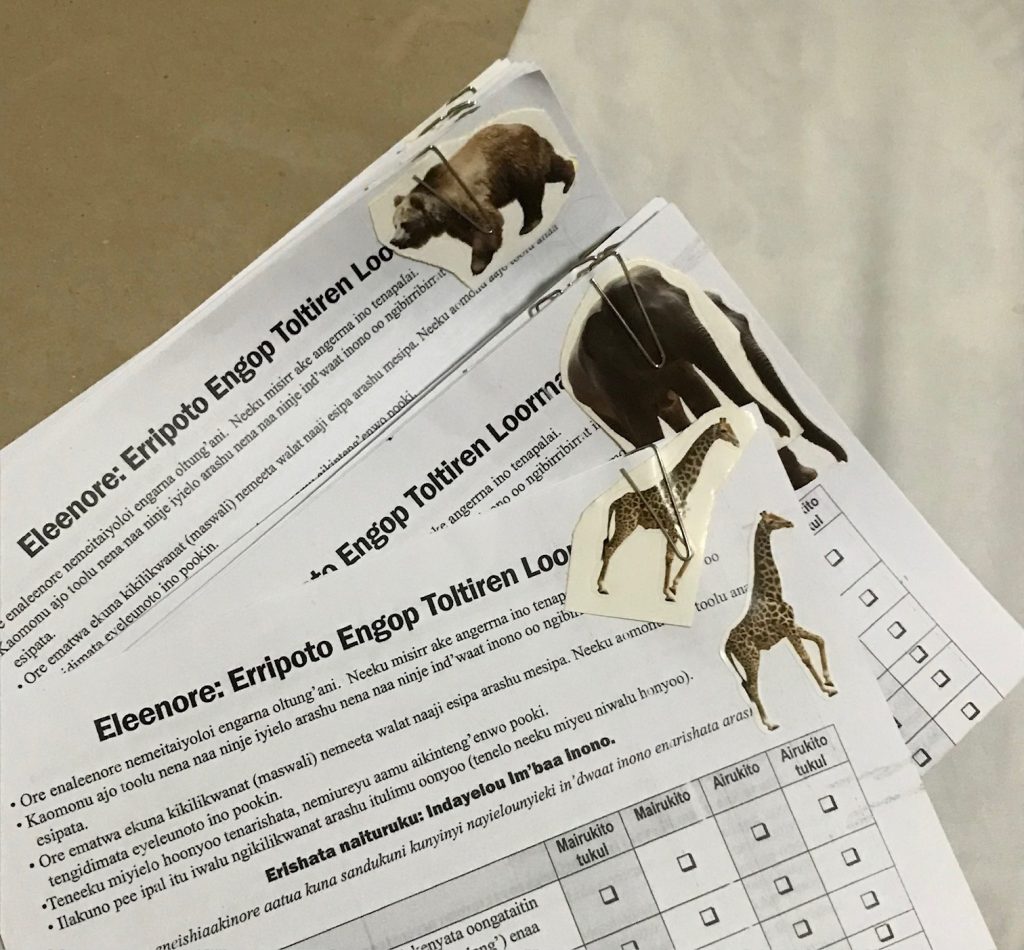The plan was that my friend, Laurie (a retired Lutheran missionary), was going to go with me to Ketumbeine, a rural Maasai area that is a 3-hour drive from my rental house on Tumaini University Campus. The following day, my group would drive an hour up Mount Ketumbeine to our village, Olchoroonyokie, hosted by the local lay pastor. I have hotel reservations for my group and things seem to be in order.
Two days before departure, Laurie calls letting me know that she is sick and won’t be able to travel. However, we have a good friend, Godi, who is a trusted taxi driver that regularly drives Laurie’s Rav 4. She is generously going to let Godi drive her car, and Godi is game to take us and spend the overnight for the trip. Whew!
Previously, I had asked two colleague/friends who are social-science research specialists and who both teach research methods to review my survey in its original English (prior to the translation). I realized that I needed some expertise to review my semi-final survey (which each of the 3 collaborative writers previously had an opportunity to view and give feedback), as this survey is the only means of data collection. Again, working with vulnerable people groups—especially youth—it would be very difficult to have ethical clearance for recorded interviews, transcriptions into English (with language check), etc. So, anonymous surveys are my only data collection vehicle.
Thanks to Dr. Betsi Litte and Dr. Laura Wangsness Willemsen, my surveys were reviewed with very helpful constructive feedback. Laura, like me, was an ELCA Lutheran volunteer teacher in Diocese secondary schools Monduli; Laura in the late 1990s at Moringe Sokoine and me in the early 2000s at the MaaSae Girls Lutheran Secondary School. Like me, Laura has been returning for over 30 years to this place we love. Recently, Laura, an educational anthropologist, finished a Fullbright Scholarship dealing with the effects of climate change in pastoralist areas in Tanzania.
Laura helped me develop the survey methodology for this project, as she has prior experience. The reality is that surveys are difficult in a Maasai context. So, adapting typical Western context surveys, which I have done for other research and evaluations, is important. She recommended and provided resources to develop the “spoken survey” method.
While the surveys are taken in a formal “spoken survey” process to aid those who do not read well or are familiar with taking surveys (which we take for granted with all the online surveys we are asked to fill out). I’ve brought in a friend’s younger brother, Joseph, who has helped me with some tasks over many months. He is tri-lingual and from the general area of the first fieldwork site. Joseph will introduce and read the survey questions in Maa.
For future fieldwork with a rural Maasai women’s group, I’ve been talking with my friend and missionary colleague, Bethany, who works with the women’s cooperative. Yes, in the rural areas, most middle-aged and older women and older men do not speak or write Kiswahili or write Maa as they did not go to primary school. (Please note that this is not a reflection upon intelligence and wisdom. Their traditional knowledge is rich! If there is a zombie apocalypse, I hope I’m with my traditional Maasai friends, who will take care of me with their generous hospitality and teach me how to survive on the savannah!)
Bethany and I have developed an idea to respond to Likert scale questions that I will run past Laura. You may know this as questions that have a scale of responses instead of a yes or no answer, such as: strongly agree, agree, disagree, strongly disagree. Watch for a description of how we will do this with our women’s group next month!

Mikitamayana Engai! / Mungu akubariki! / God bless you!